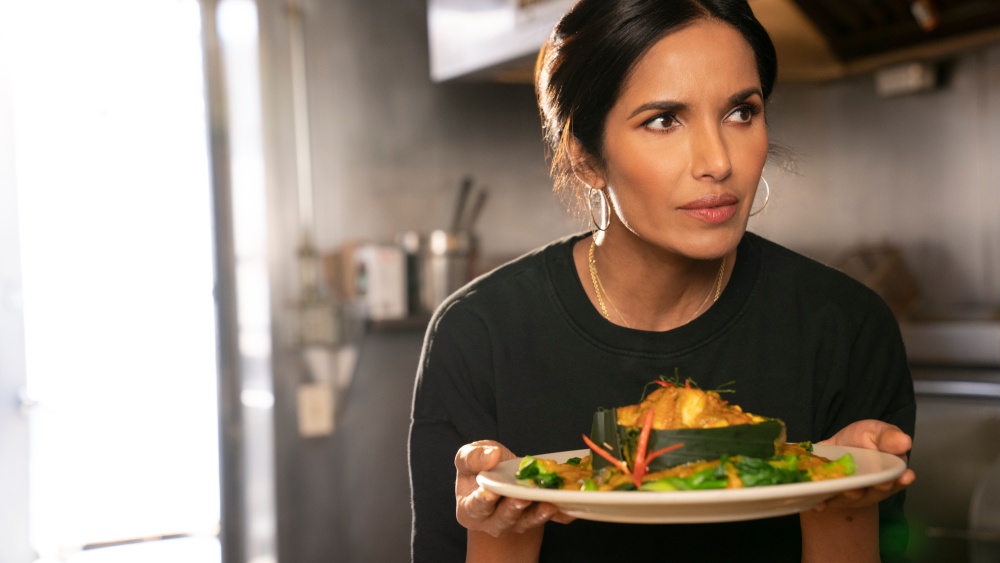As the second season of Hulu’s “Taste the Nation” starts streaming May 5, executive producer and host Padma Lakshmi again takes viewers among the immigrant communities in the U.S. via their taste buds.
Lakshmi spoke with Variety for AAPI Month ahead of the show’s season premiere. She says she and her team get lots of invitations from around the country asking them to visit and highlight the communities. This season they visit Puerto Rico, the Appalachians, the Afghan community in Washington, D.C., as well as Filipinos in the Bay Area.
“We don’t just go into a community, visit them and we’re out and then rinse and repeat in the next town,” she says. “We’re looking at the larger issue of immigration in the country that is so integral to the foundation of our modern republic but also through the ever-evolving thing that is America. Immigration is so uniquely important to this country out of all the countries in the world and it’s what has made it its superpower.”
In Puerto Rico, they examine “food sovereignty,” as the cost of produce is high, as well as the U.S. territory’s quest for statehood. “A lot of people look at Puerto Ricans and think, ‘Oh those immigrants,’ but they are not immigrants, they are U.S. citizens. But people don’t know that. And they suffered a lot because of being a territory of the United States,” Lakshmi says.
The episode also discusses how the U.S. has influenced one of Puerto Rico’s beloved dishes, pasteles, to which some people add that very American condiment: ketchup.
Through Houston’s Nigerian community, they “tackle the notion of Blackness in America.”
The Cambodian episode in Massachusetts shows what refugees bring to the country. “Lowell, Mass., was a factory town that went bust, went through a very hard period with gang infestations, drug problems and the property values went down and a lot of storefronts were boarded up. And Cambodian refugees, who really came here with the clothes on their backs, revitalized Massachusetts. They opened businesses, they revitalized downtown, even cleaned up the river so everybody can fish in it,” she says.
Closer to her home in New York City, “Taste the Nation” touches a topical theme with Ukrainians and anti-Semitism. “That is a very moving episode as well because we give people the history. We talk about borscht as a metaphor for what people are going through.”
While the communities were welcoming, the filming was not without its challenges. “We went to D.C. in the spring and it was snowing,” she says. “There were times when we couldn’t shoot outside.”
Similarly in Appalachia, it rained so that the lovely picnic with the church in the background had to be scrapped in favor of its basement. “It was just pouring, pouring, pouring.”
Lakshmi is hoping that there are more seasons of “Taste the Nation” as there are so many communities she would like to highlight. As for her other show, Bravo’s “Top Chef,” which is airing now, Lakshmi says she doesn’t know where the next season will be.
Even though she grew up vegetarian, Lakshmi’s palate has grown adventurous. She likes spicy food and is game to try anything. “Every interview is a little bit different and takes a little bit of time to warm up to each other, but that’s what I love about this show though, no two days are alike.”


